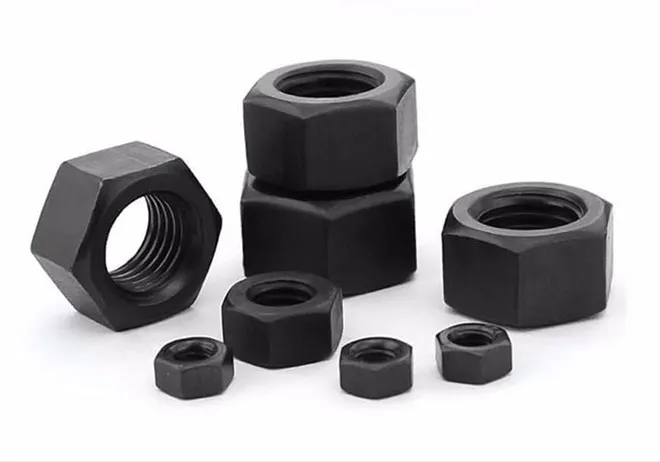bolts rs3 manufacturer
តុលា . 20, 2024 04:08 Back to list
bolts rs3 manufacturer
Understanding Bolts in RS3 Manufacturing A Comprehensive Overview
In the realm of manufacturing, the importance of quality components cannot be overstated. One such critical component is the bolt, particularly in the context of RS3 (a widely recognized model in automotive engineering). Bolts serve as essential fasteners that hold various parts of machinery together, ensuring structural integrity and operational efficiency. In this article, we will delve into the significance of bolts in RS3 manufacturing, exploring their types, materials, production processes, and the key manufacturers involved in delivering high-quality bolts to the automotive sector.
Types of Bolts
Bolts come in various types, each designed for specific applications within the RS3. Common types include hex bolts, carriage bolts, and shoulder bolts, which differ in design and function. Hex bolts, for instance, are characterized by their hexagonal heads and are widely used due to their ability to withstand high levels of torque. Carriage bolts have a rounded head and a square neck, preventing rotation during installation, making them ideal for wooden structures or assemblies. Shoulder bolts, featuring a shoulder between the head and the threaded section, are used in applications where rotation is necessary, offering a pivotal point for movement.
Materials Used in Bolt Manufacturing
The choice of material is paramount in bolt manufacturing, especially for high-performance vehicles like the RS3. Common materials include high-strength steel, stainless steel, titanium, and composite materials. High-strength steel bolts are favored for their durability and tensile strength, making them suitable for withstanding the rigorous demands of automotive applications. Stainless steel offers excellent resistance to corrosion, thereby extending the lifespan of the bolts, especially in climates prone to moisture. Titanium bolts, while more costly, provide superior strength-to-weight ratios, making them an attractive option for performance-oriented applications where weight savings are critical.
Production Processes
bolts rs3 manufacturer

The manufacturing of bolts involves several steps, starting from the selection of raw materials to the final quality checks. The process typically begins with cold forging, where metal is shaped at room temperature under high pressure. This method enhances the grain structure, resulting in stronger bolts. Following forging, bolts undergo various machining processes, including threading and drilling, to achieve precise dimensions and functionality. Heat treatment is another essential step, which involves heating the bolts and then rapidly cooling them to enhance hardness and strength. Finally, surface treatments, such as galvanization or coating, are applied to improve corrosion resistance and aesthetic appeal.
Key Manufacturers in the Bolt Industry
The bolt manufacturing industry is populated by numerous companies, each vying for recognition through quality and innovation. Companies like Fastenal, M14 Industries, and Nord-Lock are renowned for producing high-quality fasteners that meet the stringent demands of the automotive sector. These manufacturers adhere to international quality standards, ensuring their products are reliable and durable. They also invest in research and development to innovate new fastening solutions, adapting to the evolving needs of modern automotive design.
The Role of Quality Control
In the competitive landscape of bolt manufacturing, quality control is crucial. Manufacturers implement rigorous testing protocols to ensure that every bolt meets specification requirements before it is shipped to clients. This includes tests for tensile strength, hardness, and fatigue resistance. Recognizing that even the smallest component can significantly impact vehicle safety and performance, manufacturers remain committed to upholding the highest standards throughout the production process.
Conclusion
In conclusion, bolts are a fundamental aspect of RS3 manufacturing, serving as the backbone of structural integrity and performance. Understanding the various types of bolts, materials used, production processes, and the role of quality control helps highlight their significance in the automotive industry. As manufacturers continue to innovate and improve their offerings, the quality and reliability of bolts will play an increasingly vital role in the performance of modern vehicles. With the advancement of technology, we can expect to see more efficient, stronger, and lighter bolts that are essential to the future of automotive engineering. The importance of selecting the right bolts from reputable manufacturers cannot be overstated, as they contribute significantly to the safety and success of automotive designs.
Latest news
-
Reliable Axle Nuts Supplier | High-Quality Automotive Parts
NewsAug.19,2025
-
Premium Wire Bolts Suppliers | Durable & Reliable Fasteners
NewsAug.18,2025
-
Leading Metric Wood Screw Companies & Manufacturers
NewsAug.17,2025
-
Top Wire Bolts Suppliers - Quality & Durable Fasteners
NewsAug.15,2025
-
Trusted Wire Bolts Company | Quality Fasteners Supplier
NewsAug.14,2025
-
Reliable Wire Bolts Suppliers & Manufacturers for Global Needs
NewsAug.13,2025
